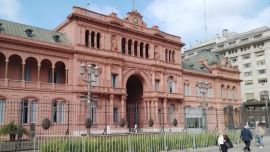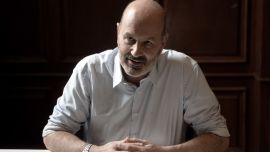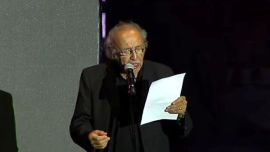Central Bank President Guido Sandleris announced Wednesday that he’ll resign from his post on December 10, with president-elect Alberto Fernández is expected to name a new economic team later this week.
Sandleris was the third Central Bank governor during President Mauricio Macri’s economically tumultuous time in office. Previously a university professor and Economy Ministry deputy, the finance official took the reins of monetary policy in September 2018 as Macri’s government renegotiated its record US$57-billion credit line with the International Monetary Fund (IMF). Monetary policy underwent several changes during Sandleris’ tenure.
In Argentina, the Central Bank isn’t legally independent from the Executive branch and the president is effectively allowed to appoint or fire the institution’s leader at will. The Central Bank has had 61 presidents in the 84 years since its founding. Fernández plans to announce his Cabinet on Friday at 6pm local time.
Sandleris lamented that the Central Bank couldn’t tame inflation on his watch, the absence of basic consensus on economic policy in Argentina’s political sphere and the bank’s lack of independence.
Central Bank independence “is one of the important factors that has contributed to the majority of countries in the world living with low inflation for awhile now,” Sandleris said. In Argentina, “this doesn’t happen.”
"Perhaps one of the frustrations of this experience is not having been able to make significant progress in building this consensus, about what is the best way to achieve that healthy currency," he admitted.
'Absolute freedom'
"I am presenting my resignation and they too [Vice-Presidents Gustavo Cañonero and Verónica Rapoport] from December 10," Sandleris said at a press conference.
"I believe that our resignations pave the way for the president-elect to have absolute freedom to designate those he deems appropriate to implement his economic plan, including his monetary policy," he added.
Sandleris, 48, took office on September 28, 2018, replacing Luis Caputo, who held the position for just three months after the controversial departure of Federico Sturzenegger, who took on the post when Macri took office in December 2015.
Sandleris acknowledged that Argentina is facing a difficult time ahead, with the country gripped by recession and experiencing "very high inflation."
Prices have risen by 42.2 percent between January and October of this year.
– TIMES/AFP/BLOOMBERG
























Comments